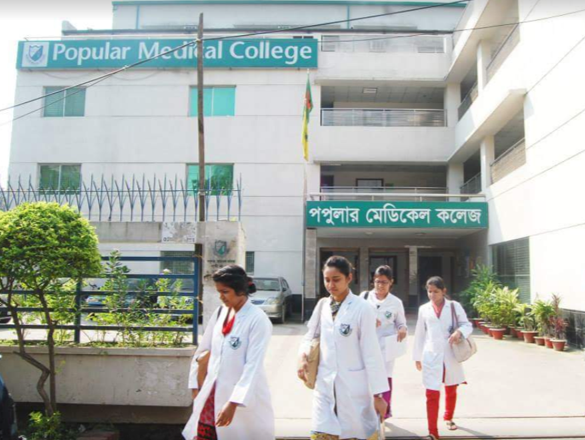
Last month, the Bangladesh government followed through on its commitment to support family planning corners at two private medical college hospitals in Dhaka. The corners opened earlier this year and offer free inpatient and outpatient counseling and services for clients. The Directorate General of Family Planning (DGFP) now supplies contraceptive commodities for the corners, which offer pills, condoms, intrauterine devices (IUDs), implants, and tubal ligation. This advocacy win is the first public-private partnership of its kind in Bangladesh and a critical opportunity to reach young people who study at the colleges or live nearby.
Young people and adolescents in Bangladesh face significant barriers to information and services in Bangladesh. About 44% of adolescent girls 15 to 19 are married and 17% have an unmet need for family planning [1]. In urban areas, most people rely on the private sector for contraception [2], but such service points are rarely equipped to provide quality, comprehensive family planning services. And as modern contraceptive use increases [3], public, government-run facilities in Dhaka have struggled to meet the growing demand.
Beginning in April 2018, Advance Family Planning local partner Marie Stopes Bangladesh (MSB) explored options for policy action on the issue. Along with members of the National Advocacy Advisory Group, Bangladesh’s national family planning working group, MSB conducted a series of meetings with key stakeholders to identify potential solutions for more family planning service delivery points in Dhaka.
Using AFP’s SMART approach, they homed in on private medical colleges as an untapped opportunity. MSB approached two colleges—Anwer Khan Modern Medical College and Hospital and Popular Medical College and Hospital—because they are the largest and most well-known in the area. Dhanmondi, where the two colleges are located, is the academic heart of Dhaka, with more than six universities and thousands of students living nearby.
Many private colleges operate as profit-driven institutions and do not prioritize family planning services. But, when approached by advisory group members in May 2018, Anwer Khan and Popular Medical College authorities saw potential in a new partnership with the government and the strategic advantage they could gain in providing more comprehensive healthcare services. They could also offer student internship opportunities at the corners. The colleges verbally agreed to the partnership in June 2018.
In July, MSB facilitated a workshop with the doctors, administrators, and other stakeholders to develop a common understanding and an operational guideline for how services would be provided. The DGFP agreed to provide the college hospitals with free family planning commodities and reimbursements for services provided so that clients would not be charged any fees. The government endorsed the operational guideline on October 31, 2018.
In December, partners held a signing ceremony to formalize the collaboration through a memorandum of understanding. After the signing, the colleges’ administrators assigned doctors, nurses, and support staff to run the family planning corners. In early 2019, the private college and hospital staff visited MSB facilities to see how comprehensive family planning service corners functioned and use it as a model for their own.
In September 2019, DGFP officials visited the corners to assess whether they were well equipped and operating per government protocol. After the visit, the Dhaka District Family Planning Office assigned two family planning welfare visitors to support documentation and reporting at the corners and ensure a regular supply of commodities.
As a next step, MSB will work with DGFP to develop a training plan for service providers at the corners. The DGFP has already allocated US $36,200 in the 2019-2020 financial year for this training. The private medical colleges are planning to dedicate specific hours for young people to receive services and make the family planning services available 24 hours per day. MSB will continue to advocate for successful implementation of these plans and ensure that the government follows through on its commitment to reimburse service costs.
References
- National Institute of Population Research and Training (NIPORT), Mitra and Associates, and ICF International. 2016. Bangladesh Demographic and Health Survey (DHS) 2014. Dhaka, Bangladesh: NIPORT, Mitra and Associates, and ICF International.
- National Institute of Population Research and Training, International Centre for Diarrhoeal Disease Research, Bangladesh, and MEASURE Evaluation. 2013. Bangladesh Urban Health Survey 2013. Dhaka, Bangladesh: U.S. Agency for International Development and Bangladesh Department for International Development.
- Bangladesh DHS 1993-94, 1996-97, 1999-2000, 2004, 2007, 2011, and 2014.

